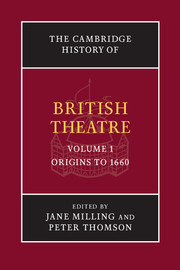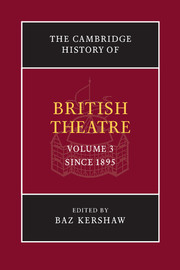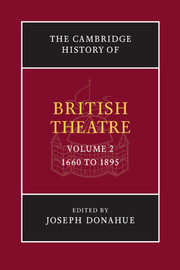3 results in The Cambridge History of British Theatre

The Cambridge History of British Theatre
-
- Published online:
- 28 March 2008
- Print publication:
- 23 November 2004

The Cambridge History of British Theatre
-
- Published online:
- 28 March 2008
- Print publication:
- 09 December 2004

The Cambridge History of British Theatre
-
- Published online:
- 28 March 2008
- Print publication:
- 09 December 2004

